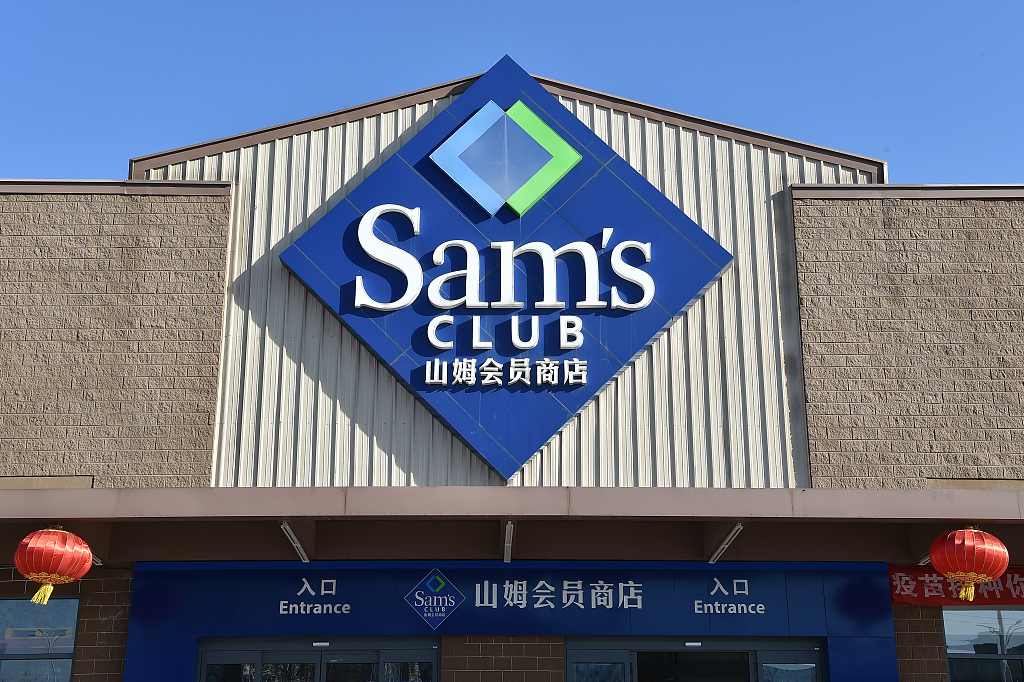Retailers gain while Walmart faces trouble
 0 Comment(s)
0 Comment(s) Print
Print E-mail China Daily, December 31, 2021
E-mail China Daily, December 31, 2021

Leading retailers in the country have been actively promoting products from the Xinjiang Uygur autonomous region as Walmart Inc faces backlash from users of Chinese social media and consumers over its unconfirmed decision to stop stocking products from the region at its hypermarkets and Sam's Club stores.
Last week, US President Joe Biden signed into law the so-called Uyghur Forced Labor Prevention Act, which virtually bans all imports from Xinjiang in China.
There have been reports this week about local internet users and consumers being upset over Walmart China's unconfirmed decision.
Walmart China did not confirm stopping stocking products from Xinjiang by press time on Thursday.
Some Chinese news outlets, however, reported that many consumers said they had canceled their membership of Sam's Club, Walmart's membership store format, over the issue.
Talk of this went viral on the Chinese social media networks online.
For its part, Walmart neither confirmed nor verified the scale of Sam's Club membership cancellations.
On Sam's Club's mobile app, three date products listed are sourced from Shenzhen, Guangdong province, and Zhongwei, the Ningxia Hui autonomous region.
Meanwhile, many leading retailers in the country have rolled out programs to stimulate sales of merchandise from Xinjiang.
Freshippo Business Group-X Wholesale Store, part of the grocery retail chain of Chinese e-commerce player Alibaba Group Holding Ltd, has unveiled a "Good Goods from Xinjiang Festival", which will start on New Year's Day. The festival will sell more than 30 kinds of merchandise, including pears and apples, from the region.
The X Wholesale Store has set up a procurement team based in Korla in Xinjiang this year to further develop its collaborations with the local agricultural sector. This marks the first time that Hema established an office in a production area.
Metro Plus, the membership unit of Metro Commerce Group, an arm of Beijing-based Wumart Group, has also set up a zone in many of its stores for Xinjiang merchandise. Such zones sell organic beef, dates, dried grapes and apples among other produce.
Metro Plus, which also operates 20 membership stores in the country, targets both traders and affluent consumers.
Jason Yu, managing director of Kantar Worldpanel China, a market research and data provider, said the success of international members-only warehouse giants Costco and Sam's Club in China has lured more local players to the fray, intensifying the competition in the niche segment.
Although Sam's Club leads the field, Freshippo X store, Metro Plus and Carrefour are all set to announce aggressive expansion plans to catch up, he said.
In recent years, Walmart China has had a mixed performance. It closed about 80 hypermarkets over the past four years, mostly due to severe competition from the e-commerce sector and the impact of COVID-19 on offline consumption, according to Caijing magazine.
According to Walmart's third-quarter results released in November, Walmart International's sales revenue outside the United States fell 20 percent year-on-year to $23.6 billion.
In China, Sam's Club has led its sector with 4 million paid members and 36 stores. The retailer said earlier it will operate 40 to 45 stores by the end of 2022.
"Sam's Club gets the spotlight in the total Walmart group business as the traditional hypermarket business continues to experience weakening performance," said Yu of Kantar.






Go to Forum >>0 Comment(s)